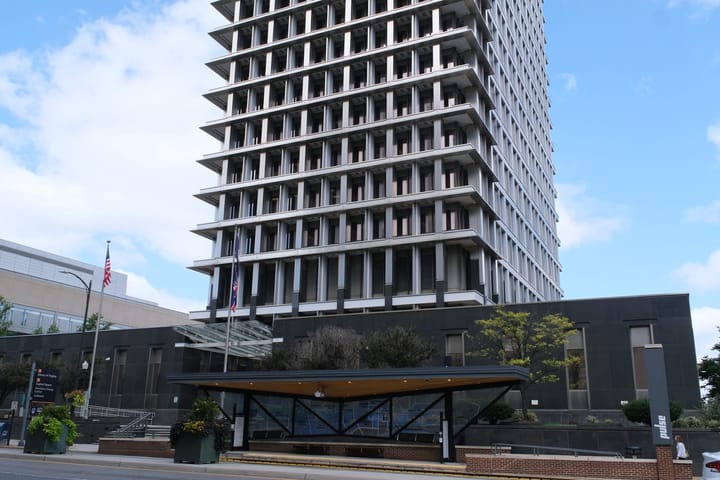
Tax rate stays unchanged, rebate approved after lengthy council debate over living costs
After several meetings over the last two months, the Richmond City Council voted against a proposal to reduce the city’s real estate tax rate but approved a one-time tax rebate plan that will be worth about $150 to the average residential homeowner next year.
The proposal to lower the tax rate by 4 cents failed, with five votes against and four votes in favor.
Several councilors said they supported giving some sort of financial relief to property owners struggling to keep up with bills, but felt it was more prudent to adopt the one-time rebate rather than a permanent reduction to the rate.
The rate will stay at $1.20 per $100 of assessed value, the same rate the city has had since 2008.
Property values have rapidly increased across the city over the last five years, pushing tax bills higher for homeowners and businesses alike.
Councilor Reva Trammell (8th District) introduced a proposal in early September to lower the rate to $1.16, which would have also saved the average homeowner about $150.
Opponents of her proposal warned against a structural rate reduction when the city is preparing to freeze the assessment process in the 2027 budget year to synchronize the reassessment cycle with the city’s budget process. Those two deeply intertwined processes currently happen at two different times of year, with the budget adopted in the spring and new assessment notices sent out in September that dictate how much real estate tax revenue the city will actually take in.
For weeks, Trammel has told her colleagues she’s hearing serious angst in her district from longtime residents who feel they’re losing the ability to stay in their homes.
“If it fails tonight, I’m not going to give up,” Trammell said. “I’m going to keep pushing it and pushing it and pushing it.”
“We don’t doubt that,” said Council President Kristen Nye (4th District), who sponsored the ordinance to leave the rate as is. That proposal passed unanimously after Trammell’s failed.
The other members voting with Trammell were Councilors Ellen Robertson (6th District), Ann-Frances Lambert (3rd District) and Stephanie Lynch (5th District).
Many of the five members who opposed the rate reduction said they felt there was too much risk involved.
Councilor Katherine Jordan (2nd District) referenced former President Donald Trump’s victory in last week's presidential election, saying the council should avoid “locking us into a tax cut when we have no idea what the next president is going to do.”
The Stoney administration and several council members cited increased city expenses related to collective bargaining by city employees as a reason not to take action that could impede future revenues.
“For me it would be ideal if we could in fact have a four-cent reduction that would be ongoing,” said Councilor Cynthia Newbille (7th District). “At this point there are unknowns that preclude us from making that kind of decision at this moment.”
After deciding against lowering the tax rate, the council unanimously approved the trio of tax relief initiatives the Stoney administration proposed, including the rebate payments that will go out next year.
The mayor’s plan also includes a pair of new programs meant to give targeted relief to the neediest Richmonders, avoiding an across-the-board cut that would also benefit the city’s wealthiest residents and major commercial property owners.
Though some details are still being worked out, one of those programs would freeze property tax bills in place for older and disabled homeowners, shielding them from higher bills if property values continue to increase.
The other program would provide lower-income homeowners and renters with housing assistance grants worth up to $200 a month for six months.






